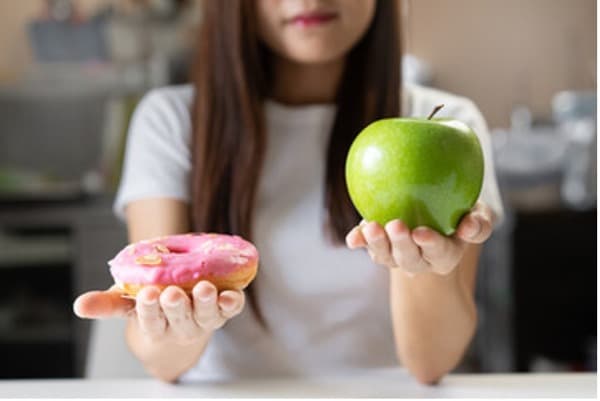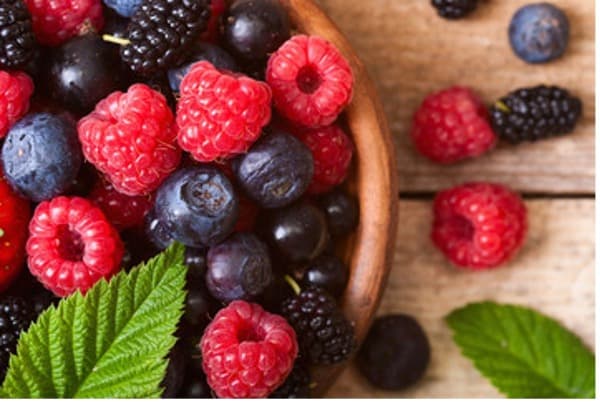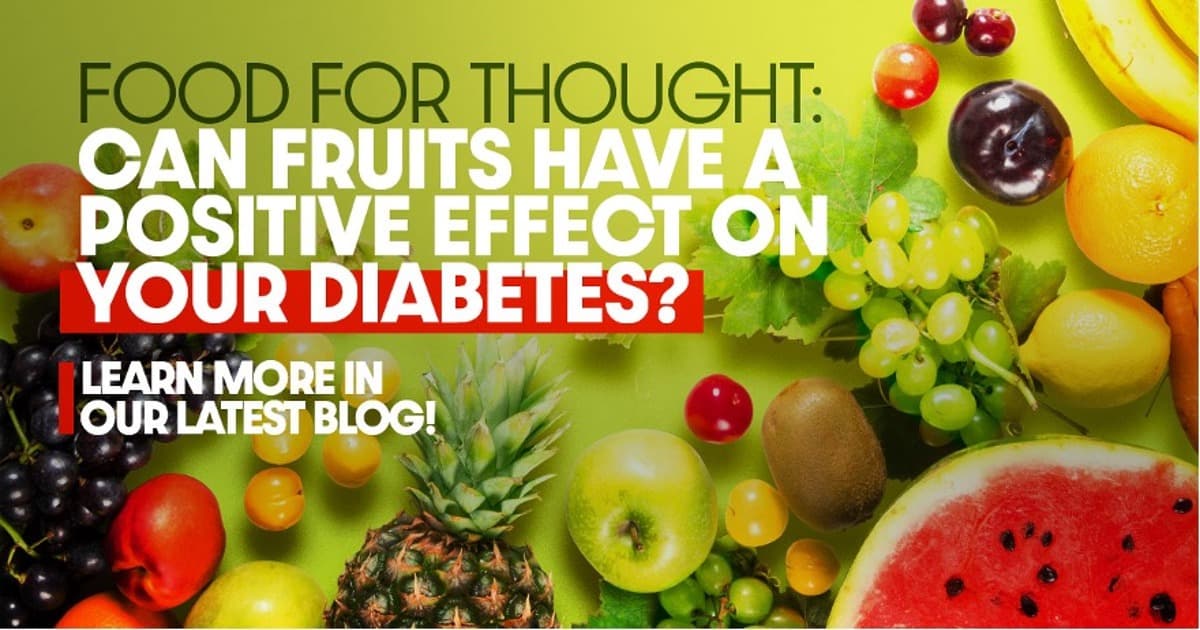Managing dietary needs when living with diabetes can be difficult, but here’s some food for thought; what if fruits could have a positive effect on your diabetes? Read our blog to learn all about how to incorporate fruits into a diabetes friendly diet!
Debunking the Diabetes Fruit Myth
A main concern for individuals managing their diabetes is food intake, primarily when it comes to sugar. Learning to keep your blood sugar in-check is vital to healthy living. However, the keyword there is healthy. No well-balanced diet benefits from avoiding the addition of fruits to the plate. While fruits do have carbohydrates and contain fructose (a natural form of natural sugar), management of consumption is necessary, but that doesn’t mean that fruits need to be cut from your diet altogether. In moderation, fruits are not only okay to incorporate into your diet, but can be a nutritious addition capable of aiding to fight inflammation and even normalizing blood pressure if consumed intelligently.

Positive Effect of Fruits for Diabetes – Keep Carbohydrates in Mind
It’s important when creating a meal plan that you follow a low-carbohydrate diet. However, this doesn’t mean you have to avoid fruit altogether. One can still include fruit if eating mindfully. We advise that a single serving of fruit contain no more than 15 grams of carbohydrates, thus allowing you to play with the serving size depending on the carb content of the fruit you’re eating. Fruit can be a great substitute for other carbohydrates in your meal plan such as dairy or grains.
Here are a few examples of acceptable serving sizes depending on the fruit:
- 1 cup of blackberries
- 1 cup of raspberries
- 1 cup of cantaloupe or honeydew melon
- 1 ¼ cup of strawberries
- 1/2 apple or banana
- 3/4 cup of blueberries
The same cannot be applied for canned fruit or fruit juices high in processed sugars. When purchasing canned fruit be sure to look for words such as “unsweetened” or “no sugar added” before purchasing.

Diabetes Friendly Fruit(s)
Berries contain high levels of antioxidants, vitamins, and fiber, making them a desirable fruit to incorporate into a diabetes diet. According to the ADA, berries are considered a diabetes super food, containing nutrients capable of lowering your risk for heart disease and type 2 diabetes. The berry family is not only low in sugar, but also contains a natural sugar known as fructose that does not require insulin to be metabolized. The healthiest fruits for someone managing their diabetes are ones low in sugar such as berries, apricots, apples, grapefruit, kiwis, peaches, and plums. However, fruits higher in sugar such as bananas, watermelon, and pineapple should be managed. Life with diabetes can have its obstacles, but it can still taste sweet!

Tap into the sweeter side of life by learning more about our currently enrolling diabetes studies! Those that qualify and participate in research studies may receive compensation for time and travel and see a doctor or other medical staff at no cost. Click here to submit your information on our website or contact us at (941) 896-4648.
Resources:
https://diabetes.org/healthy-living/recipes-nutrition/eating-well/diabetes-superstar-foods
https://www.cdc.gov/diabetes/library/features/diabetes-and-food-insecurity.htm












